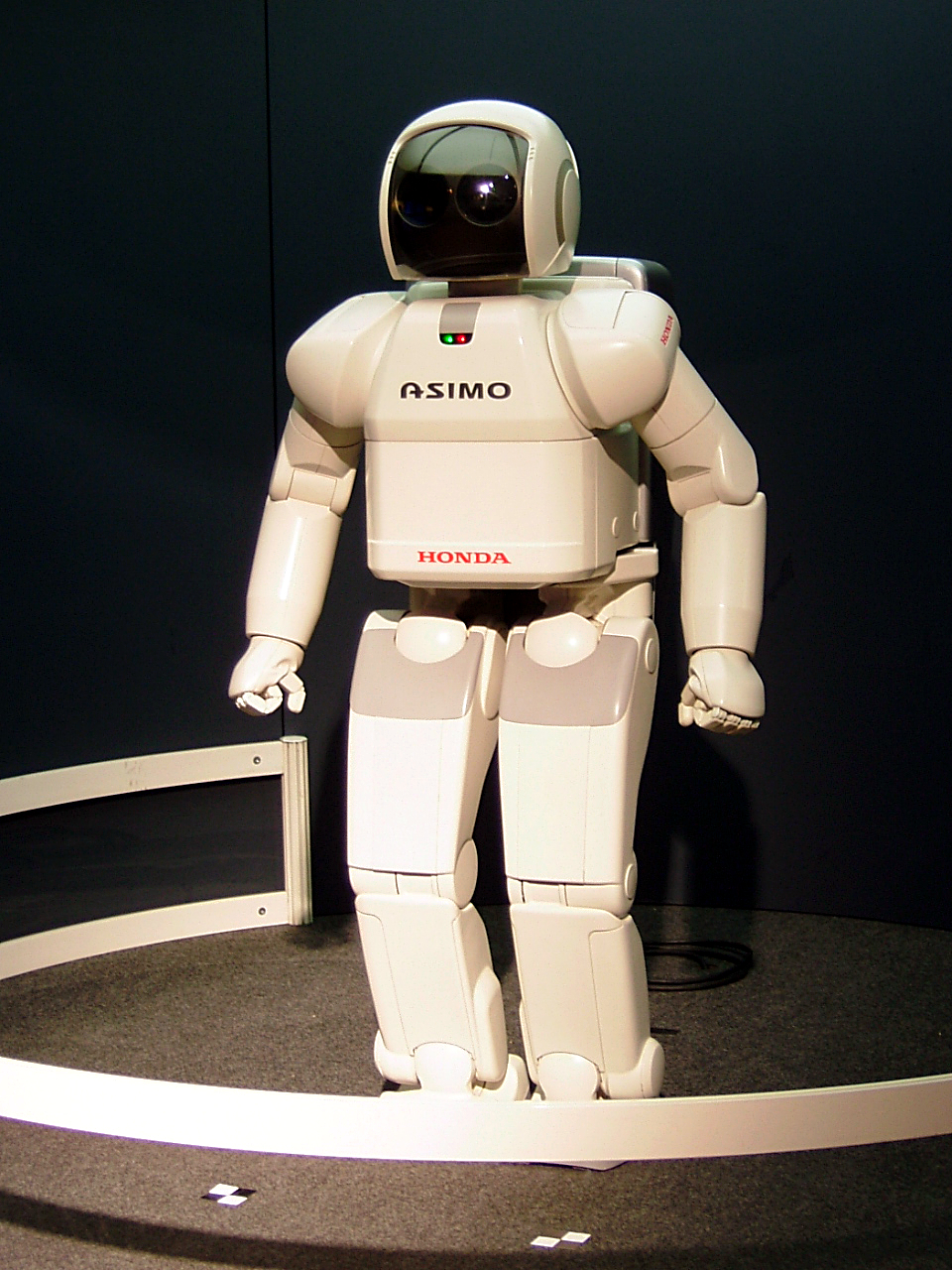|
Posthuman Condition
Posthuman or post-human is a concept originating in the fields of science fiction, futurology, contemporary art, and philosophy that means a person or entity that exists in a state beyond being human. The concept aims at addressing a variety of questions, including ethics and justice, language and trans-species communication, social systems, and the intellectual aspirations of interdisciplinarity. Posthumanism is not to be confused with transhumanism (the biotechnological enhancement of human beings) and narrow definitions of the posthuman as the hoped-for transcendence of materiality. The notion of the posthuman comes up both in posthumanism as well as transhumanism, but it has a special meaning in each tradition. In 2017, Penn State University Press in cooperation with Stefan Lorenz Sorgner and James Hughes established the ''Journal of Posthuman Studies'', in which all aspects of the concept "posthuman" can be analysed. Posthumanism In critical theory, the posthuman is a spe ... [...More Info...] [...Related Items...] OR: [Wikipedia] [Google] [Baidu] |
Science Fiction
Science fiction (sometimes shortened to Sci-Fi or SF) is a genre of speculative fiction which typically deals with imaginative and futuristic concepts such as advanced science and technology, space exploration, time travel, parallel universes, extraterrestrial life, sentient artificial intelligence, cybernetics, certain forms of immortality (like mind uploading), and the singularity. Science fiction predicted several existing inventions, such as the atomic bomb, robots, and borazon, whose names entirely match their fictional predecessors. In addition, science fiction might serve as an outlet to facilitate future scientific and technological innovations. Science fiction can trace its roots to ancient mythology. It is also related to fantasy, horror, and superhero fiction and contains many subgenres. Its exact definition has long been disputed among authors, critics, scholars, and readers. Science fiction, in literature, film, television, and other media, has beco ... [...More Info...] [...Related Items...] OR: [Wikipedia] [Google] [Baidu] |
Perspectivism
Perspectivism (german: Perspektivismus; also called perspectivalism) is the epistemological principle that perception of and knowledge of something are always bound to the interpretive perspectives of those observing it. While perspectivism regard all perspectives and interpretations as being of equal truth or value, it holds that no one has access to an absolute view of the world cut off from perspective. Instead, all such occurs from some point of view which in turn affects how things are perceived. Rather than attempt to determine truth by correspondence to things outside any perspective, perspectivism thus generally seeks to determine truth by comparing and evaluating perspectives among themselves.For the perspectivist divergence between truth and value, and its opposition to correspondence theories of truth, see: Including its pre-Nietzschean forms, perspectivism traditionally holds that: "All seeing occurs from some point of view, in accordance with our interests. There ... [...More Info...] [...Related Items...] OR: [Wikipedia] [Google] [Baidu] |
Cyborg Theory
"A Cyborg Manifesto" is an essay written by Donna Haraway and published in 1985 in the '' Socialist Review (US)''. In it, the concept of the cyborg represents a rejection of rigid boundaries, notably those separating "human" from "animal" and "human" from "machine." Haraway writes: "The cyborg does not dream of community on the model of the organic family, this time without the oedipal project. The cyborg would not recognize the Garden of Eden; it is not made of mud and cannot dream of returning to dust." The "Manifesto" criticizes traditional notions of feminism, particularly feminist focuses on identity politics, and encourages instead coalition through affinity. She uses the figure of the cyborg to urge feminists to move beyond the limitations of traditional gender, feminism, and politics; the "Manifesto" is considered a major milestone in the development of feminist posthumanist theory. Major points Haraway begins the "Manifesto" by explaining three boundary breakdowns sinc ... [...More Info...] [...Related Items...] OR: [Wikipedia] [Google] [Baidu] |
Robot
A robot is a machine—especially one programmable by a computer—capable of carrying out a complex series of actions automatically. A robot can be guided by an external control device, or the control may be embedded within. Robots may be constructed to evoke human form, but most robots are task-performing machines, designed with an emphasis on stark functionality, rather than expressive aesthetics. Robots can be autonomous or semi-autonomous and range from humanoids such as Honda's ''Advanced Step in Innovative Mobility'' ( ASIMO) and TOSY's ''TOSY Ping Pong Playing Robot'' (TOPIO) to industrial robots, medical operating robots, patient assist robots, dog therapy robots, collectively programmed ''swarm'' robots, UAV drones such as General Atomics MQ-1 Predator, and even microscopic nano robots. By mimicking a lifelike appearance or automating movements, a robot may convey a sense of intelligence or thought of its own. Autonomous things are expected to proliferate in ... [...More Info...] [...Related Items...] OR: [Wikipedia] [Google] [Baidu] |
Trope (literature)
A literary trope is the use of figurative language, via word, phrase or an image, for artistic effect such as using a figure of speech. Keith and Lundburg describe a trope as, "a substitution of a word or phrase by a less literal word or phrase." The word ''trope'' has also come to be used for describing commonly recurring or overused literary and rhetorical devices, motifs or clichés in creative works. Literary tropes span almost every category of writing, such as poetry, film, plays, and video games. Origins The term ''trope'' derives from the Greek (''tropos''), "turn, direction, way", derived from the verb τρέπειν (''trepein''), "to turn, to direct, to alter, to change". Tropes and their classification were an important field in classical rhetoric. The study of tropes has been taken up again in modern criticism, especially in deconstruction. Tropological criticism (not to be confused with tropological reading, a type of biblical exegesis) is the historical study of ... [...More Info...] [...Related Items...] OR: [Wikipedia] [Google] [Baidu] |
Donna Haraway
Donna J. Haraway is an American Professor Emerita in the History of Consciousness Department and Feminist Studies Department at the University of California, Santa Cruz, and a prominent scholar in the field of science and technology studies. She has also contributed to the intersection of information technology and feminist theory, and is a leading scholar in contemporary ecofeminism. Her work criticizes anthropocentrism, emphasizes the self-organizing powers of nonhuman processes, and explores dissonant relations between those processes and cultural practices, rethinking sources of ethics. Haraway has taught women's studies and the history of science at the University of Hawaii (1971-1974) and Johns Hopkins University (1974-1980). She began working as a professor at the University of California, Santa Cruz in 1980 where she became the first tenured professor in feminist theory in the United States. Haraway's works have contributed to the study of both human–machine and h ... [...More Info...] [...Related Items...] OR: [Wikipedia] [Google] [Baidu] |
A Cyborg Manifesto
"A Cyborg Manifesto" is an essay written by Donna Haraway and published in 1985 in the '' Socialist Review (US)''. In it, the concept of the cyborg represents a rejection of rigid boundaries, notably those separating "human" from "animal" and "human" from "machine." Haraway writes: "The cyborg does not dream of community on the model of the organic family, this time without the oedipal project. The cyborg would not recognize the Garden of Eden; it is not made of mud and cannot dream of returning to dust." The "Manifesto" criticizes traditional notions of feminism, particularly feminist focuses on identity politics, and encourages instead coalition through affinity. She uses the figure of the cyborg to urge feminists to move beyond the limitations of traditional gender, feminism, and politics; the "Manifesto" is considered a major milestone in the development of feminist posthumanist theory. Major points Haraway begins the "Manifesto" by explaining three boundary breakdowns sinc ... [...More Info...] [...Related Items...] OR: [Wikipedia] [Google] [Baidu] |
Cyborg
A cyborg ()—a portmanteau of ''cybernetic'' and ''organism''—is a being with both organic and biomechatronic body parts. The term was coined in 1960 by Manfred Clynes and Nathan S. Kline.Cyborgs and Space in ''Astronautics'' (September 1960), by Manfred E. Clynes and American scientist and researcher Nathan S. Kline. Description and definition "Cyborg" is not the same thing as bionics, , or ; it applies to an organism that has restored function ...[...More Info...] [...Related Items...] OR: [Wikipedia] [Google] [Baidu] |
Manuel De Landa
Manuel DeLanda (born 1952) is a Mexican- American writer, artist and philosopher who has lived in New York since 1975. He is a lecturer in architecture at the Princeton University School of Architecture and the University of Pennsylvania School of Design, where he teaches courses on the philosophy of urban history and the dynamics of cities as historical actors with an emphasis on the importance of self-organization and material culture in the understanding of a city. DeLanda also teaches architectural theory as an adjunct professor of architecture and urban design at the Pratt Institute and serves as the Gilles Deleuze Chair and Professor of Philosophy at the European Graduate School. He holds a BFA from the School of Visual Arts (1979) and a PhD in media and communication from the European Graduate School (2010). DeLanda was previously a visiting professor at the University of Southern California School of Architecture, where he taught an intensive two-week course in the ... [...More Info...] [...Related Items...] OR: [Wikipedia] [Google] [Baidu] |
Routledge
Routledge () is a British multinational publisher. It was founded in 1836 by George Routledge, and specialises in providing academic books, journals and online resources in the fields of the humanities, behavioural science, education, law, and social science. The company publishes approximately 1,800 journals and 5,000 new books each year and their backlist encompasses over 70,000 titles. Routledge is claimed to be the largest global academic publisher within humanities and social sciences. In 1998, Routledge became a subdivision and imprint of its former rival, Taylor & Francis Group (T&F), as a result of a £90-million acquisition deal from Cinven, a venture capital group which had purchased it two years previously for £25 million. Following the merger of Informa and T&F in 2004, Routledge became a publishing unit and major imprint within the Informa "academic publishing" division. Routledge is headquartered in the main T&F office in Milton Park, Abingdon, Oxfordshire and ... [...More Info...] [...Related Items...] OR: [Wikipedia] [Google] [Baidu] |
Individual
An individual is that which exists as a distinct entity. Individuality (or self-hood) is the state or quality of being an individual; particularly (in the case of humans) of being a person unique from other people and possessing one's own Maslow's hierarchy of needs, needs or goals, rights and moral responsibility, responsibilities. The concept of an individual features in diverse fields, including biology, law, and philosophy. Etymology From the 15th century and earlier (and also today within the fields of statistics and metaphysics) ''individual'' meant "divisible, indivisible", typically describing any numerically singular thing, but sometimes meaning "a person". From the 17th century on, ''individual'' has indicated separateness, as in individualism. Law Although individuality and individualism are commonly considered to mature with age/time and experience/wealth, a sanity, sane adult human, human being is usually considered by the State (polity), state as an "individu ... [...More Info...] [...Related Items...] OR: [Wikipedia] [Google] [Baidu] |
Ontology
In metaphysics, ontology is the philosophical study of being, as well as related concepts such as existence, becoming, and reality. Ontology addresses questions like how entities are grouped into categories and which of these entities exist on the most fundamental level. Ontologists often try to determine what the categories or highest kinds are and how they form a system of categories that encompasses classification of all entities. Commonly proposed categories include substances, properties, relations, states of affairs and events. These categories are characterized by fundamental ontological concepts, including particularity and universality, abstractness and concreteness, or possibility and necessity. Of special interest is the concept of ontological dependence, which determines whether the entities of a category exist on the most fundamental level. Disagreements within ontology are often about whether entities belonging to a certain category exist and, if so, how they ... [...More Info...] [...Related Items...] OR: [Wikipedia] [Google] [Baidu] |








